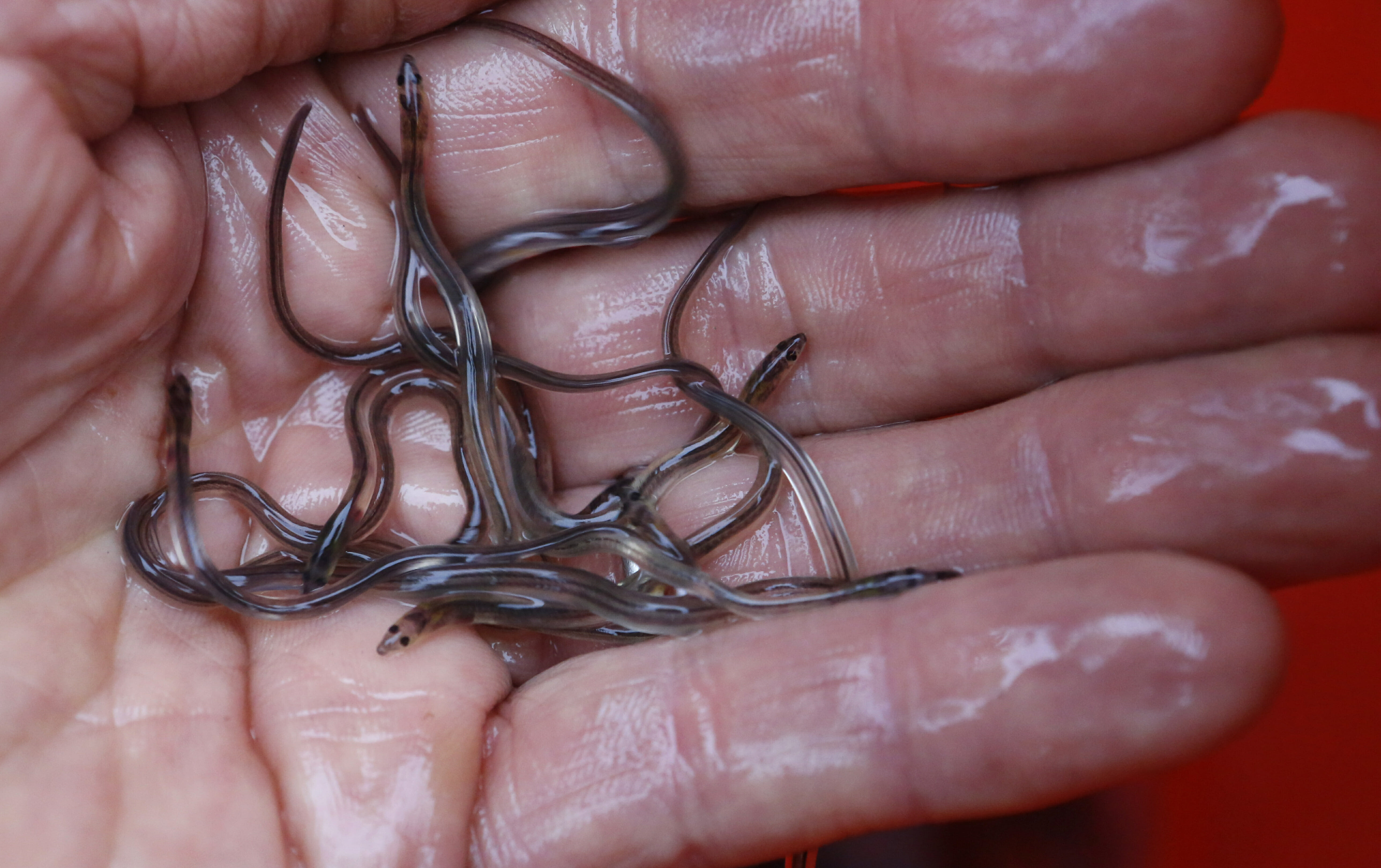
Baby eel fishermen hope for year free of poaching, shutdowns
PORTLAND, Maine (AP) — Maine fishermen began several weeks of taking to rivers and streams to fish for baby eels Friday, which marked the start of a high-stakes season harvesters hope isn’t interrupted by poaching concerns as it was a year ago.
Fishermen in Maine use nets to harvest baby eels, called elvers, to feed demand from Asian aquaculture companies, who use them as seed stock.
The tiny eels are the source of one of the most valuable fisheries in the country on a per-pound basis, and they were worth a record of more than $2,300 per pound last year. Maine’s home to the only significant elver fishery in the country.
Last year’s season was shut down two weeks early by state regulators after investigators found that illegal sales had caused Maine to blow past its quota for the eels. New controls on the fishery are expected to clamp down on clandestine sales, and the use of a swipe card system to record transactions remains in effect.
Darrell Young, co-director of the Maine Elver Fishermen Association, said the health of the fishery also depends on members of the industry “behaving themselves” this time around.
“Buyers wanted to find their way around the swipe cards. They just made it harder for everybody else,” Young said.
The elvers are raised to maturity in aquaculture facilities so they can be used as food, such as kabayaki, which is a skewered, filleted cut of the fish. Most of the world’s eel is produced in China, and the fish is especially popular as food in Japan. Some of the elvers harvested in Maine eventually come back to the United States for use in sushi restaurants.
An interstate fishing commission set the quota at 9,688 pounds. That was about the amount of elvers Maine fishermen harvested in 2014, when regulators decided to tighten controls on the fishery. The quota had previously been more than 2,000 pounds higher.
The elver fishing season has the ability to run until June 7, but it ends earlier if fishermen tap out the quota before then.
Elver fishing sometimes begins slowly and heats up in April and May because fishermen need rivers and streams to thaw before they can fish.
American elvers became especially valuable in the early 2010s, when other country’s eel fisheries faltered. They’ve been worth anywhere from $875 to $2,366 per pound since.
The Western Journal has not reviewed this Associated Press story prior to publication. Therefore, it may contain editorial bias or may in some other way not meet our normal editorial standards. It is provided to our readers as a service from The Western Journal.
Truth and Accuracy
We are committed to truth and accuracy in all of our journalism. Read our editorial standards.
Advertise with The Western Journal and reach millions of highly engaged readers, while supporting our work. Advertise Today.












